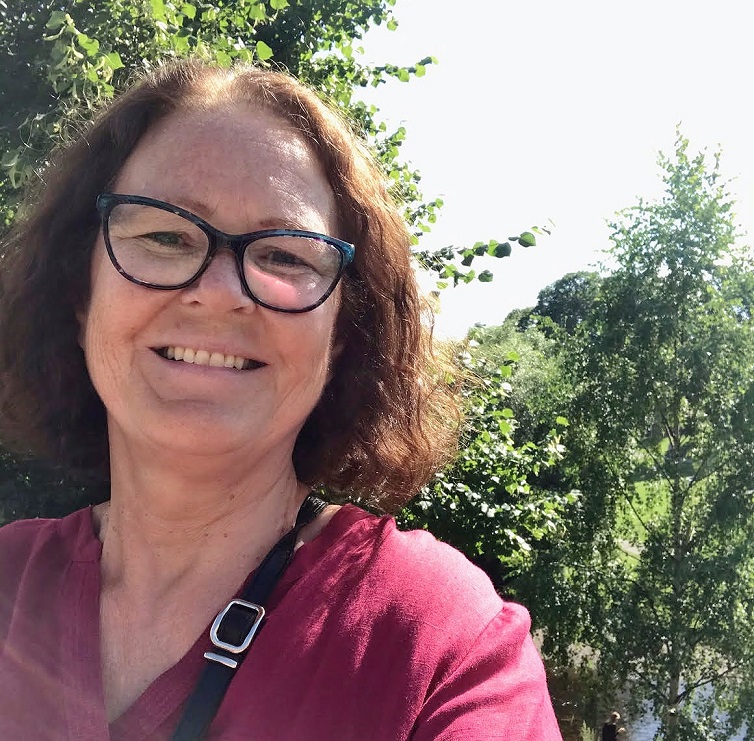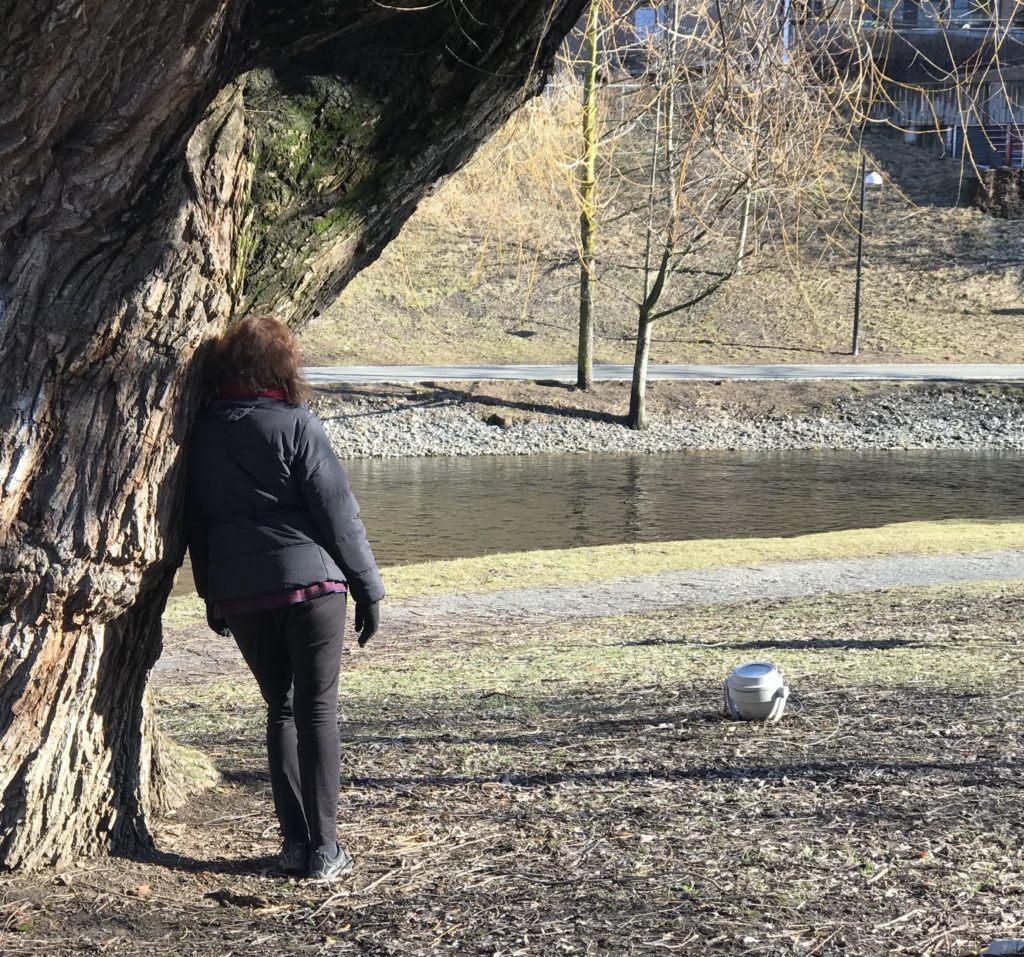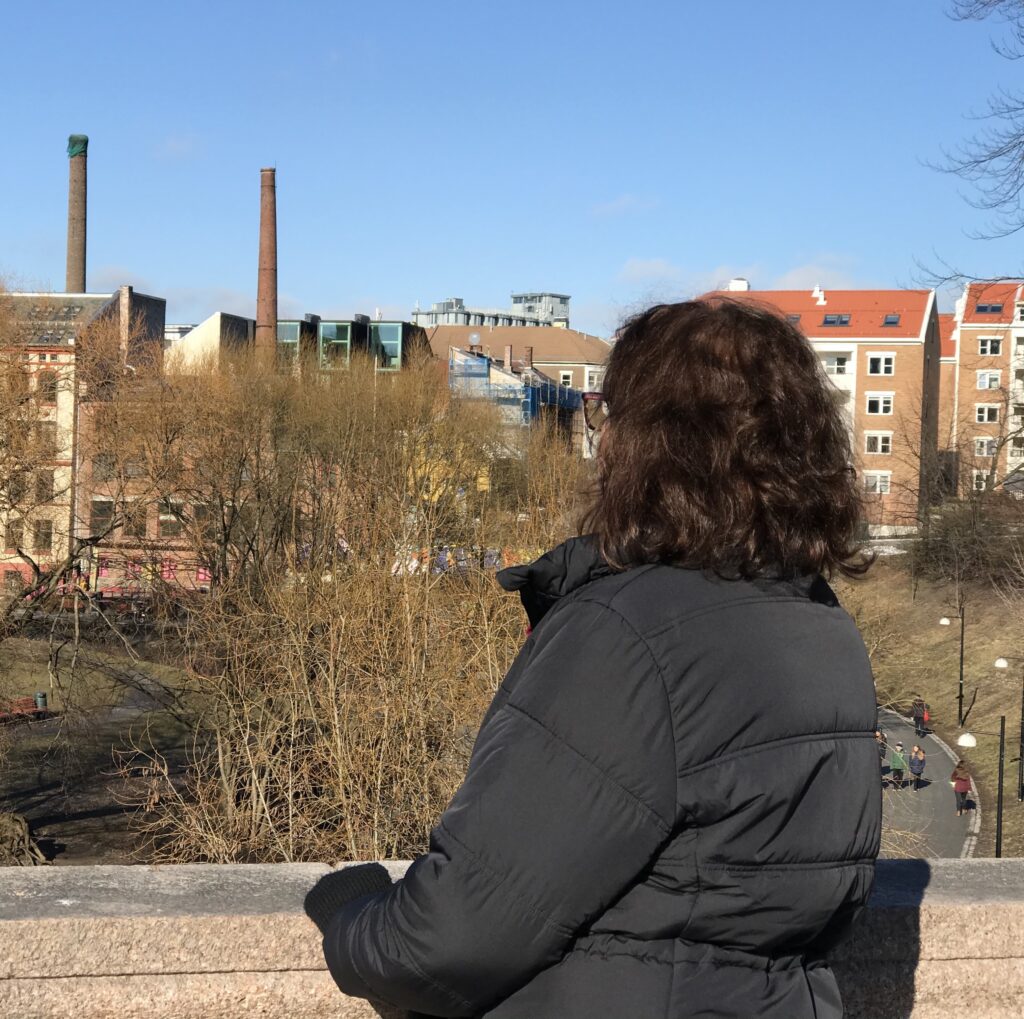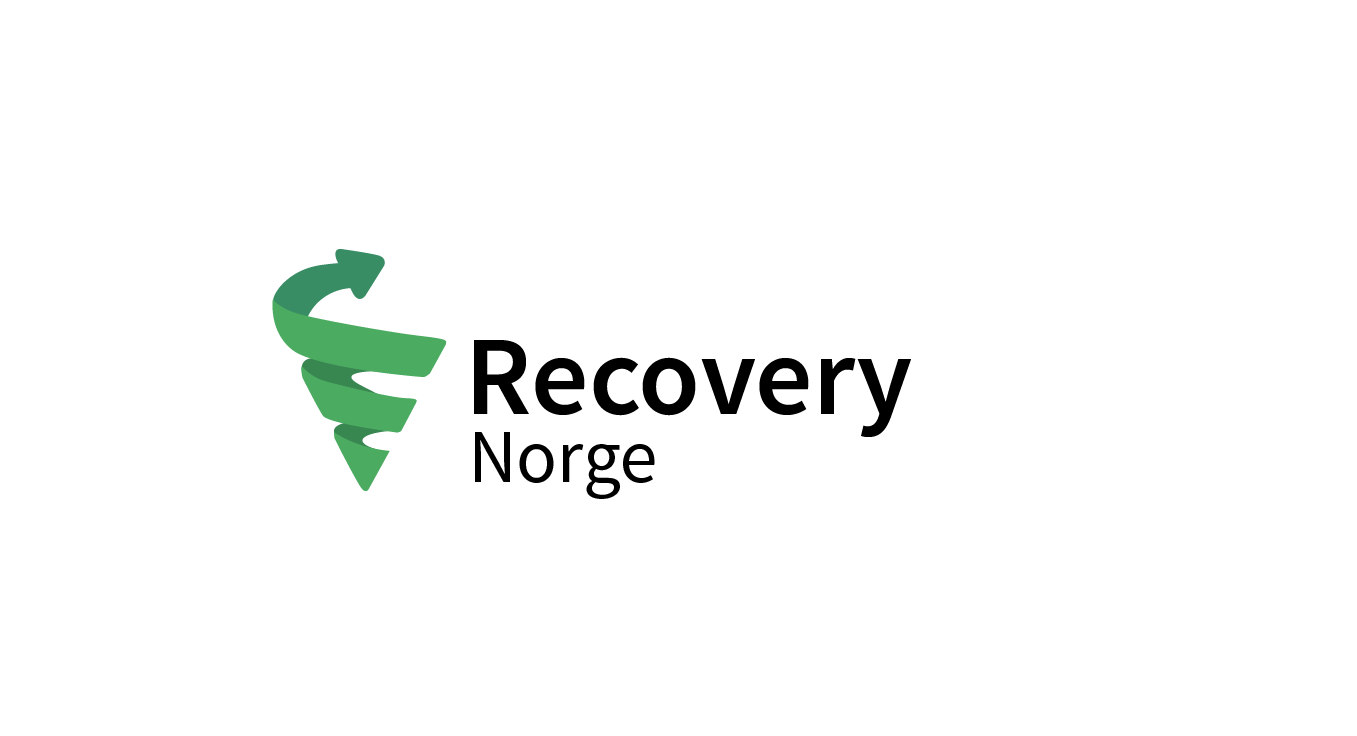Author: Nina Caspersen

I was diagnosed with cancer in 2012 and during the following year I went through operation, chemotherapy, and radiation. The treatment was physically demanding, and I was barely able to walk when it was over. After a few weeks’ rest, I was looking forward to beginning rehabilitation training under the instruction of the hospital physiotherapist. I was keen and ready to make a real effort with the training, but instead of getting better my condition deteriorated and eventually I ended up bedridden.
I was told I suffered from fatigue as a result of the cancer treatment
I was told I suffered from fatigue as a result of the cancer treatment. There was research being done in this field, but it was impossible to say yet whether the fatigue was caused by the chemo, the radiation, or the cancer itself. At that time, research focused primarily on the physical. My doctor tells me that nowadays the research is more focused on the psychological factors as a cause of fatigue.
When I fell ill with fatigue, I was told that I must never exert myself, whether physically or mentally. If I overdid things, I felt worse. Very gradually I started to build myself up again. Three years later I was still in a wheelchair, but able to walk a little and take part in social activities a few hours, two to three times a week. I felt better and agreed with my employer and NAV (the national Labour and Welfare service) to test my working capacity. I was really keen to work again.
Little by little I increased my activity levels to include some work, some volunteering and socialising. I was afraid of a relapse, so I made sure I got a lot of rest. Gradually I began to feel worse again, but I kept up my activity levels. I so wanted to have a normal life; to work, to meet up with friends, contribute to society and feel good.
After about one year I collapsed. A strange feeling of exhaustion suddenly overcame me, and I was barely able move in bed. I was back to where I had been four years previously, only worse. I ended up in hospital, where the blood tests showed I was perfectly well, despite the fact I could barely stand up. The days were filled with physical pain and discomfort. I was convinced that all my physical problems had physical causes whether I felt palpitations, undulating bodily pain, pains that came and went or terrible chest pains and breathing difficulties. I was transferred to a nursing home; at first for a couple of months at a rehabilitation ward, and subsequently to a long-term placement. I moved less and less in bed, convinced as I was that any little movement would overexert me, and thus make my condition worse.

The doctor at the nursing home tried to help me. I was given the opportunity to speak to a psychologist but declined, convinced as I was that the root cause of the illness was physical. A range of medication was tested out, but my condition deteriorated all the same. My physical troubles meant I slept very little. After several nights with no sleep, I got sent to the hospital and was prescribed a very strong sleeping drug. This enabled me to sleep up to four hours a night. I remember the hospital doctor telling me, almost accusingly: “But you don’t do anything so of course you have no natural need to sleep.” He was right, of course, as I wasn’t even able to get out of bed, but it felt very accusatory and hurtful to me. My feelings of powerlessness and helplessness grew even worse.
The nursing home also referred me to the CFS/ME centre at the Aker hospital. They take in patients with similar symptoms to mine, to assess whether the patient suffers from ME. The patient is admitted for two weeks, and goes through consultations with doctors, physiotherapist, nutritionist, etc., to assess whether the symptoms correspond with the defined symptoms for ME. Naturally I had high hopes they would be able to help me.
A doctor and a nurse from the CFS/ME centre came to see me. I could only manage a brief, whispered conversation for about five minutes before I needed a rest. I limited my activities as much as possible because I was always worried that I might overexert myself, which would make my condition worse.
After this conversation with me they had a brief meeting with my spouse and the doctor. My husband came back to me and said that the CFS/ME centre was shocked to see how ill I was, and that I was far too sick for them to be able to help me. In a subsequent phone call my husband was told to let me know that I had to make sure to wiggle my feet every day, to prevent drop foot. We never heard from them again.
My husband came back to me and said that the CFS/ME centre was shocked to see how ill I was, and that I was far too sick for them to be able to help me.
After this I lost any hope that anybody from the health services would ever be able to help me. In my despair I begged my husband to let me come back home so that I could try some gentle rehabilitation on my own, like I had done the first time I became sick. My husband took several months of unpaid welfare leave, turned a room in our flat into a sick bay and took on the full responsibility of nursing me. We also applied to the local council to get community nurses and a personal assistant (BPA).

It took months of applications, meetings, home visits, reviews and appeals, before we were finally allocated home services and BPA. My partner could return to work but was still my main carer at nights and the weekends. There was not much free time or rest for my husband and after a few months where I just kept getting worse we were both desperate. Other than nursing care, the health services really had no advice or treatment to offer. I was cooped up in a tiny room, I was fed and tended to, barely able to turn around in bed and without any kind of contact with the outside world. Life had no value to me. I felt a huge sense of guilt towards my spouse for the burden I had become, and no longer wanted to live, although I was unable to find a way of ending it all. Deep down inside I still wanted to live.
I was cooped up in a tiny room, I was fed and tended to, barely able to turn around in bed and without any kind of contact with the outside world
The turning point came when we heard about the Lightning Process. We said yes in pure desperation as this was the first time we had heard about a method that had helped others in the same situation. Live Landmark phoned me on a Sunday and said I could come to a course on Friday the same week, in only five days. Alternatively, she could come and see me at home, but that meant I would have to wait for several months. I did not believe I would be capable of getting myself to a course. I could not stand up or walk and thought she couldn’t possibly know how ill I was. But having decided to try the LP, I did not make any objections. We spoke for just over an hour, which in itself was quite revolutionary for me. The talk motivated me and the same night I experimented with getting out of bed and down on the floor. I went for it, asked them to put cushions on the floor and rolled myself out of bed. I dragged myself along the floor. It made me feel utterly exhausted of course, but the habitual feeling of debilitation I was used to did not happen.
We spoke for just over an hour, which in itself was quite revolutionary for me

The following morning I spoke to Live once more and managed to roll out of bed again and drag myself into the living room. With the help of my personal assistant I got dressed in my normal clothes for the first time in 16 months, and I sat upright on the sofa and spent several hours in the living room before I dragged myself back to bed. On Tuesday we had a new talk. After this I tried to go outside for a bit. I already had an electrical wheelchair, but to get into it I would have to stand upright. With one person on either side of me and a walker in front I managed to get up. Standing on my own two feet was insanely painful and terrifying, but I managed to get into the wheelchair and out of the flat. On Wednesday my assistant and I went to a cafe, and I bought my husband a Christmas gift. That also went well. By now I was convinced I would make it to the training course. On Thursday I had a day of rest, and on Friday I went to the course. The first week I tried to mull things over as little as possible and just focus on what I was supposed to be doing. “Do; don’t think”, became a mantra which I stuck to for the first couple of weeks.
Do; don’t think
At the course I learnt how to work on my own thought patterns in order to get better. I began to believe that my body could cope with physical exercise and stopped expecting that any physical and mental activity would make me feel worse. Now, half a year later, I exercise two to three times a week, I’ve been to the Canary Islands and London on holiday, and I enjoy an active social life. I have taken up volunteering and feel pleased as punch with my life. Regrettably there is no going back to working life, as I have been diagnosed with cancer again. But this time I know what is ahead of me. I have a great support network and the mental tools available that I sincerely believe, together with physical exercise, will get me through the treatment.
